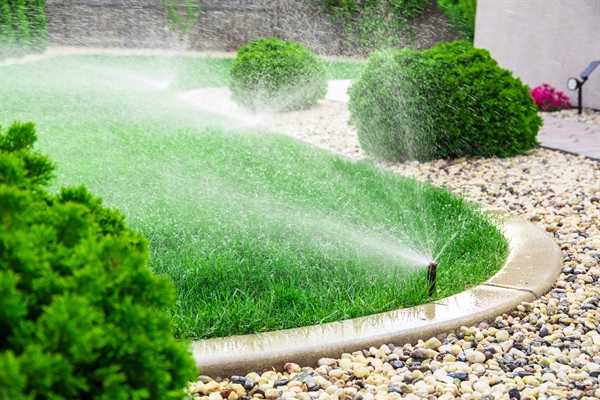Low-Maintenance Lawn in Minnesota: Essential Tips and Expert Advice

Creating a low-maintenance lawn in Minnesota isn't just a dream—it's an attainable goal that can save time, conserve resources, and enhance your property's aesthetic appeal. The key is selecting the right strategies and materials that thrive in Minnesota's unique climate and soil conditions.
One fundamental approach is choosing the right type of grass. Drought-resistant grasses can significantly decrease the need for watering, mowing, and overall maintenance. But what types of grass are best suited for Minnesota's climate?
This blog explores practical ways to reduce the workload associated with traditional lawn care while promoting sustainability and beauty. We'll delve into the most effective varieties that are not only resilient but also visually appealing.
For those interested in these solutions, exploring our landscaping services can provide further insights and professional guidance tailored to your specific needs. Join us as we explore how to transform your lawn into a low-maintenance haven!
Choosing the Best Drought-Resistant Grass Types for Minnesota
The foundation of a low-maintenance lawn in Minnesota begins with the selection of appropriate grass types. Drought-resistant varieties, such as fine fescue and buffalo grass, are well-suited for the state's variable climate. Fine fescue thrives in cooler temperatures and requires minimal watering, making it a practical choice for areas with water restrictions. Buffalo grass, known for its tolerance to extreme heat and drought, offers a robust option for sunnier and drier areas.
These grass types not only reduce the need for frequent watering but also withstand periods of drought with little to no damage. By choosing the right grass, homeowners can significantly cut down on their lawn maintenance needs, reducing both time and resource expenditure.
Integrating these grasses into your lawn planning can be a game-changer. Consulting with a professional on the best seed mix and soil preparation methods can ensure that these grass types establish themselves successfully, offering long-term benefits and enhancing the sustainability of your outdoor space.
Reducing Lawn Size with Creative Landscaping Features
Reducing the size of your lawn through strategic landscaping is a highly effective way to diminish upkeep. Incorporating elements such as rock gardens, native plant areas, or even artificial turf can significantly cut down the green space that requires regular mowing and watering.
Features like patios, decks, and walkways not only add aesthetic value but also reduce the lawn area. Utilizing ground cover plants such as creeping thyme or sedum in place of grass can provide a beautiful and resilient alternative that demands minimal attention.
These alternatives enhance your property's visual appeal and promote biodiversity by attracting local wildlife. Engaging a landscaping expert can help tailor these features to your property's specific conditions and personal style preferences.
Maximizing Efficiency with Automated Irrigation Systems
Automated irrigation systems are a cornerstone of maintaining a lush lawn without the labor-intensive process of manual watering. These systems can be programmed to water your lawn at the most effective times, usually during the early morning or late evening, to reduce evaporation and maximize water absorption.
Smart irrigation systems go a step further by monitoring weather conditions and soil moisture levels to adjust watering schedules and volumes accordingly. This not only conserves water but ensures that your lawn receives the precise amount needed for optimal growth.
The initial investment in an automated system can quickly pay for itself through reduced water bills and the elimination of overwatering. Homeowners will find that these systems are not only a convenience but a crucial tool in promoting lawn health and sustainability.
Exploring Low-Maintenance Lawn Alternatives
For those seeking to completely transform their lawn care routine, alternative ground covers can be an excellent option. Materials like mulch, decorative stones, or even synthetic turf require no mowing, minimal upkeep, and provide a year-round aesthetic appeal.
Natural alternatives such as clover are also beneficial, as they are drought-resistant, require little mowing, and naturally fertilize the soil by fixing nitrogen. These alternatives are not only practical but also environmentally friendly, reducing the need for chemical fertilizers and pesticides.
Deciding on the best lawn alternative depends on your specific landscape needs and aesthetic desires. A landscape design professional can offer valuable advice on which materials and plants are best suited for your area's climate and soil type.
Implementing Best Practices for Efficient Lawn Care
To truly minimize the time spent on lawn maintenance, adopting certain best practices is essential. These include mowing at the correct height to promote grass health, watering deeply but infrequently to encourage deep root growth, and using mulching mowers to recycle grass clippings back into the soil as natural fertilizer.
Seasonal aeration and overseeding can also play significant roles in maintaining lawn health with less effort. Aeration allows for better water and nutrient absorption, while overseeding helps in establishing a dense, self-sustaining turf that naturally crowds out weeds.
Lastly, integrating organic lawn care practices such as natural pest control and homemade compost can reduce the need for synthetic chemicals, making your lawn care routine not only easier but also more sustainable.
Transform Your Lawn with Expert Guidance
Creating a low-maintenance lawn tailored to Minnesota's climate is within your reach with the right guidance and expertise. Whether you're considering the benefits of drought-resistant grass, innovative landscaping features, or state-of-the-art irrigation systems, our team at Ben's Lawn and Landscape is here to help.
We specialize in designing sustainable and beautiful outdoor spaces that are easy to maintain and environmentally friendly. Our expert landscapers can help you choose the perfect low-maintenance lawn alternatives and implement best practices that significantly reduce the need for frequent lawn care.
To discover more about how we can transform your lawn into a low-maintenance landscape, reach out to us at 763-258-9340 for a free estimate, and let us help you make the most of your outdoor space with minimal effort.